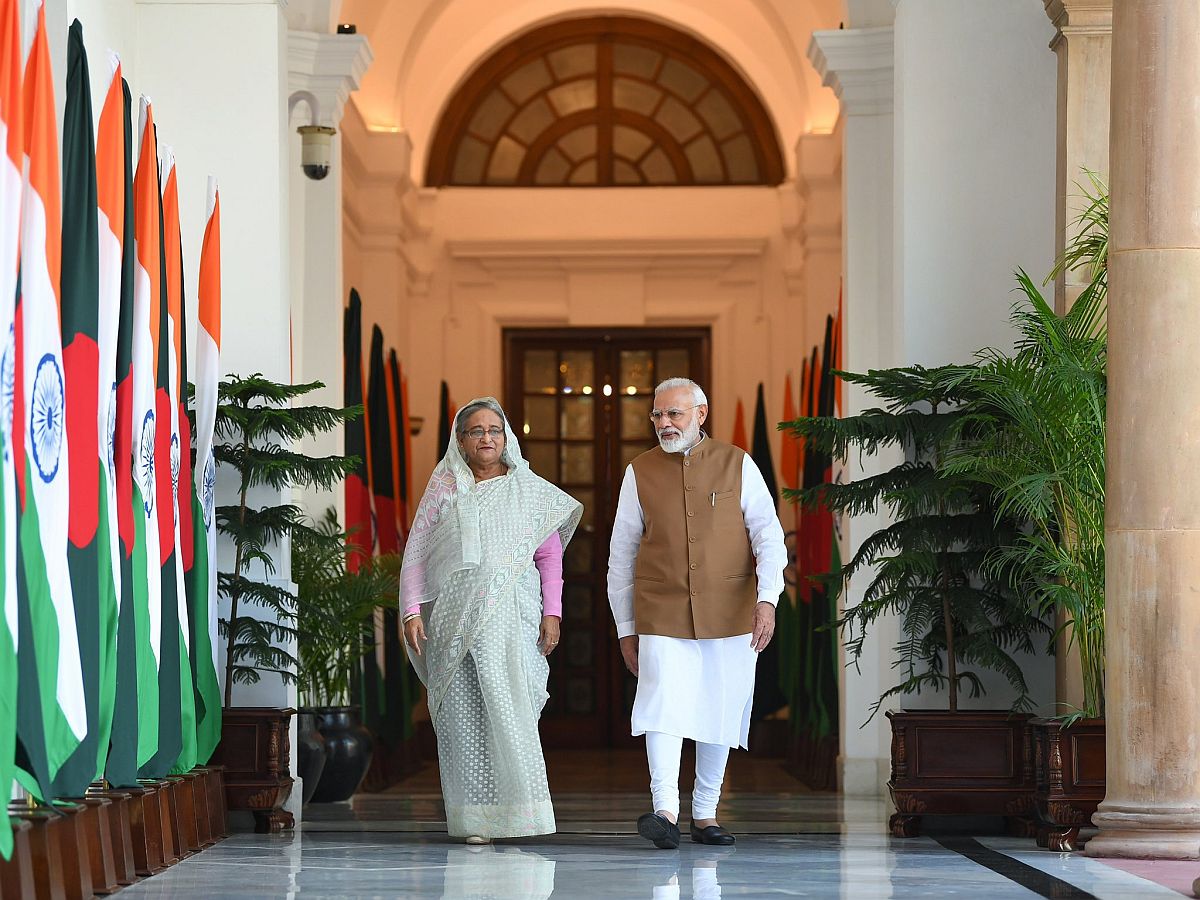Congress committing dacoity on rights of OBCs, SCs, STs: PM
“Wherever it (Congress) can do it, it will try to loot the claims of the SCs, STs and OBCs and give them to others,” said Modi.
Sheikh Hasina has deferred the programme in the wake of the outbreak of coronavirus, which has claimed at least one life in her country.

Bangladesh Prime Minister Sheikh Hasina with her Indian counterpart Narendra Modi. (Photo: Twitter/@narendramodi)
In the context of the build-up in Dhaka against Narendra Modi’s visit to Bangladesh to participate in Sheikh Mujibur Rahman’s centenary celebrations, it is indeed unfortunate that the Prime Minister has had to cancel his plans for so historically momentous an occasion. He was scheduled to visit Dhaka on 17 March.
On the face of it, Begum Hasina has deferred the programme in the wake of the outbreak of coronavirus, which has claimed at least one life in her country. But she hastens to add that “we will still hold the programme that day, but in a subdued manner”. Not to put too fine a point on it, Sheikh Mujibur Rahman’s daughter has been remarkably diplomatic. From Santiniketan to Dhaka, the affliction has turned out to be a convenient alibi to prompt a rethink on events ranging from Basant Utsav to Mujib’s centenary. More basically, the decisions of Visva-Bharati University – with strong links to Bangladesh – and the Awami League government are no less crucially inked to campus hooliganism and the anti-India fervour that has been whipped up in Bangladesh over the citizenship issue.
There has indeed been a surge in anti-India sentiment ever since the Citizenship Amendment Act was passed. The cancellation of Mr Modi’s travel plans can be contextualised with the decision of two Bangladesh ministers to cancel their visits to India in protest against the Centre’s essay 48 years after the emergence of Bangladesh through a heroic liberation struggle that was spearheaded by Mujibur Rahman – a forbidding challenge to the military establishment to the west of the Radcliffe Line. It would be pertinent to recall that the ground was prepared by India’s foreign secretary, Mr Harsh Vardhan Shringla, on a recent visit to Dhaka, indeed his first port of call after taking over at the helm of the foreign office. And yet the Ministry of External Affairs is said to have been rather unnerved by the robust street protests, verily a curtain-raiser to Mr Modi’s visit.
Advertisement
Notably, hundreds of thousands marched in procession in Dhaka last week, condemning the Delhi riots – or was it a ‘pogrom’, as the noted economist Prabhat Patnaik contends? – and demanding the cancellation of the Prime Minister’s visit. Was it really necessary to organise street protests against India on the eve of Mujib’s centenary? The contentious issues could well have been settled at the bilateral high table. Rather, the protests were tacitly condoned by the administration in Dhaka.
The claim that these were “stray protests” holds no water. It will be hard not to wonder whether the Awami League government has played into the hands of the Bangladesh Nationalist Party, which plays the anti-India card almost as a matter of its political philosophy. Unmistakable is the diplomatic finesse in the Hasina administration’s decision to indefinitely defer the programme – a paradox in South Asian history if ever there was one. Begum Khaleda must be enjoying a quiet chuckle.
Advertisement